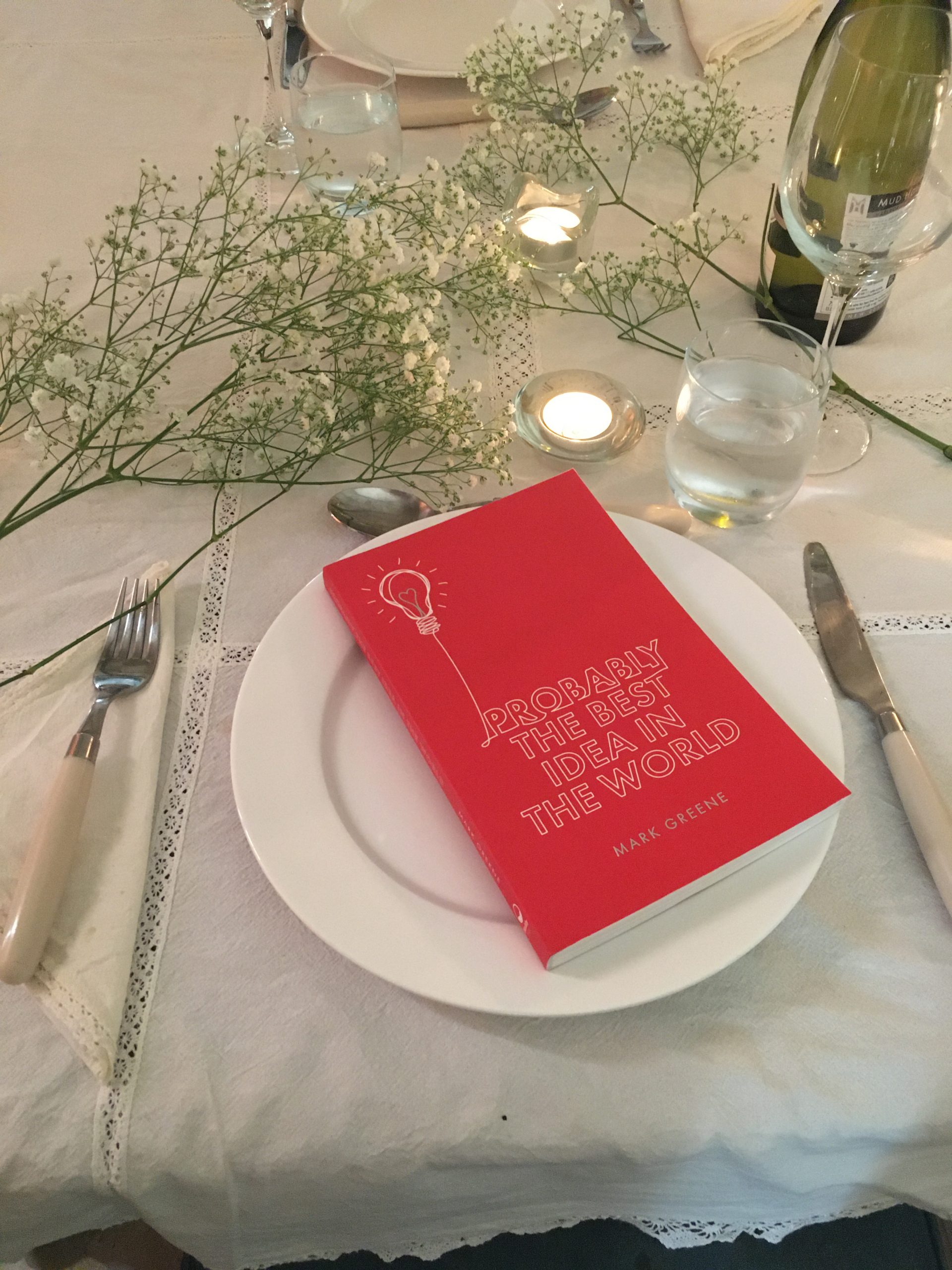Last week, forty-five days into the most recent lockdown, a neighbour thanked me for saying ‘hello’ to them. I was pretty taken aback. I’ve got plenty of experience of people saying ‘thank you’ when I take my leave but this was my first at ‘hello’.
I’d popped out of my front door which, in these days of confinement, feels pretty exciting in itself. And I spotted him walking down the road, no doubt on his way to work. He’s in his seventies but he’s in shipping, and we need those cargo boats to keep on docking. Anyway, he’d already passed our house. Now eleven months ago I wouldn’t have shouted out after him. But the times they have a-changed, so I shouted out to him. And we boomed at each other from across the road for five minutes – about this, that, and not very much. It was nice to be able to see someone’s legs as you talked to them, and not to be wondering if they were wearing shorts, a swimming costume or pink pyjamas with bunnies on them. All in all, it felt pretty good. It was as he left that he thanked me for saying ‘hello’ to him. Well, I was also pretty grateful for the chat, but it made me realise how little it takes to ‘love my neighbour’ in the time of Covid.
And it reminded me just how important human contact is to us all.
After all, when we aren’t able to see our close friends, hug our parents, or our student-age or working-age children, or our grandchildren, or shake the hand of our new boss or even be in the same room as her, then every smidgen of human contact feels like a jug of water to a man who has just spent five days in the Sahara without a drink. Or a hat. In July. Loss makes us realise the value of what we now don’t have. And what many of us don’t have in the time of Covid is not just access to our key relationships, we don’t have all those little interactions with people we know less well that make up the texture of our lives.
They matter too.
Indeed, I suspect that delivery drivers and postal workers have found themselves much more frequently thanked and smiled at and waved at than ever before. They may be the only people many of us see in the flesh in a day. Similarly, people are much, more likely to say ‘hello’ to you as you pass them in the street than they ever did before. In the past, when people crossed over to the other side of the road when they saw me coming, I had a pretty good idea what they were saying. Now we wave. And we nod at each other in smiling gratitude for caring enough to keep well apart. We nod to confirm that we are not avoiding each other. We nod to confirm our connection, our relatedness, our solidarity in this struggle against what threatens all our lives.
In “Probably the Best Idea in the World“, I outlined five factors that tend to enrich relationship. The pandemic attacks them all. But all the same, this not-so-famous five may give us some pointers as to how we can reduce its impact, and show kindness and consideration to our ‘neighbours’ – colleagues, friends, people we happen upon…
Here they are:
1. Directness of contact – maximise it.
Well, a kiss on the cheek may be better than an ‘x’ at the bottom of an email but we can’t do anything about lockdown rules or social distancing. However, we can perhaps think about how we can make our interactions that smidgen bit more personal. At work, we can get to the Zoom meeting early and chat to people as they come in. We can linger a bit afterwards. We can call someone straight afterwards for a short more personal chat. If we’re homeworking, then when we connect to friends on Zoom we can change our location from the one we work in, or change the picture on the wall behind us, or the digital background, or change our shirt/sweater/jacket/uniform/cloak to something more casual – to indicate to them and ourselves that we are in a different mode.
2. Continuity of contact – treasure it
One of the things that the pandemic has done is to break many of my rhythms – my rhythm of seeing friends at certain times of the year, my rhythm of going to church, my rhythm of going to the shops, the barber, the dentist. And I’ve realised that I’ve let most of those contacts go. Yes, I’ve sometimes deliberately gone and stood six feet away from Hershida’s newspaper kiosk outside the station and I’ve booked an occasional call to a couple of the people that I’d normally drive 70 miles to go for a walk with, but I’ve not popped a text or a WhatsApp or booked a zoom call to many of those people, just to let them know I’m thinking of them. One boss I know makes sure that he calls everyone in his core team every day. After all, they aren’t seeing each other in the office, and able to pick up on whether someone’s having a good day, a bad day, or a meltdown. And that continuity of some daily contact means that there’s a way to keep in touch, keep track. Particularly with people who are on their own.
3. Commonality of purpose it – clarify it
Shared purpose binds people together, whether that’s keeping a business going so people can get fed, throwing a party with some friends, planning a trip, or just clearing up a mountain of dishes in time to catch the beginning of the match together. One leader put it this way, ‘We’ve been through a tremendous challenge together and come out the other side. And we’ve never been closer.’ Still, in times of pressure, it can be easy to lose sight of that purpose. At work, we can forget why we are offering this service to people, and why it matters. Why it still matters. Why it may matter more. Similarly, at home, with three school-age children, and two working adults, we can forget, in the maelstrom of competing activities, our common purpose in making sure everyone knows they are loved, safe, cherished, encouraged. The pandemic can make us lose sight of the bigger picture.
4. Multiplexity – foster it
Multiplexity is the idea that your relationship with someone grows much deeper much faster when you see them in a new context, or do something you don’t normally do with them. That’s why team awaydays spent figuring out how to cross a forty-foot wide river using four sticks, two pillow cases and a Kit-Kat can be so enriching – I’m told. For many of us the pandemic, on the surface, has killed that opportunity. Except to introduce us to spending more time on screen with each other. But there are still ways to create different ways of relating. We can use Zoom for games, we can start a reading group, book a group watch of a film, and, if we have the money, all order a takeaway of the same type of food and eat together. One business started doing mystery meet-ups, randomly putting three people in a group and giving them twenty minutes to chat, and some conversation starters to get them going. People loved it.
One other way of creating multiplexity is to use different media. One young adult started to write letters to her grandfather. An absolute joy for him. Indeed, in these digital days, physical letters and cards and photographs – things we can touch – seem much more valuable to us, precisely because they are rarer. I have a friend who bought forty blank cards and sent one to thank a different person for their contribution to her life each day of Lent.
5. Parity of Power – protect it
Parity of power doesn’t mean parity in authority or equality in competence. It means parity in having a voice. In families, in workplaces, in sports teams we don’t all have the same abilities or level of authority, but we should all have a voice, have a say, be heard. When times are tough, there’s a danger that people ‘lower’ down in the hierarchy get ignored. So, one of the ways we love our neighbour who is our junior colleague, our youngest child or the contract cleaner is to ensure we honour them by ensuring we find out how they are, how they are responding to the pressures they are under. Loving against the Odds
Of course, it’s one thing to talk about loving others, it’s quite another to have the capacity to do it, particularly in times of pressure when it can be so easy to focus on ourselves. How can we get the focus off ourselves? When Jesus reinforces the importance of loving our neighbour in Matthew 22: 39, Mark 12:31 and Luke 10:27, he precedes it by the command to ‘love God’. That always comes first because as we remind ourselves of his character and his actions on our behalf – his majesty, his kindness, his generosity, his faithfulness, his forgiveness, his mercy, the wisdom of his ways – we come to grow in wonder and gratitude at being loved by such a God. And that knowledge is the wellspring of a deep assurance that helps us take the focus off our ourselves, in the best of times and the worst of times, and enables us to show kindness to others. Being loved by such a God makes us want to walk in his ways, to seek to obey, to reach out to our neighbour. The Apostle John put it this way, ‘We love because he first loved us’ (1 John 4:19).
May we know this love, and love in his ways.
About the Author

Mark Greene grew up Jewish and joyous, and celebrated becoming a Christian in his early twenties. He worked in advertising in London and New York, loved it, and is still prepared to admit it. He is now Mission Champion of the London Institute for Contemporary Christianity, after leading the organisation for over twenty years, and before that was Vice Principal of the London School of Theology. He speaks, tells stories, and writes, mainly on the joys, trials, and surprises of living all of life as a follower of Jesus in today’s world.

